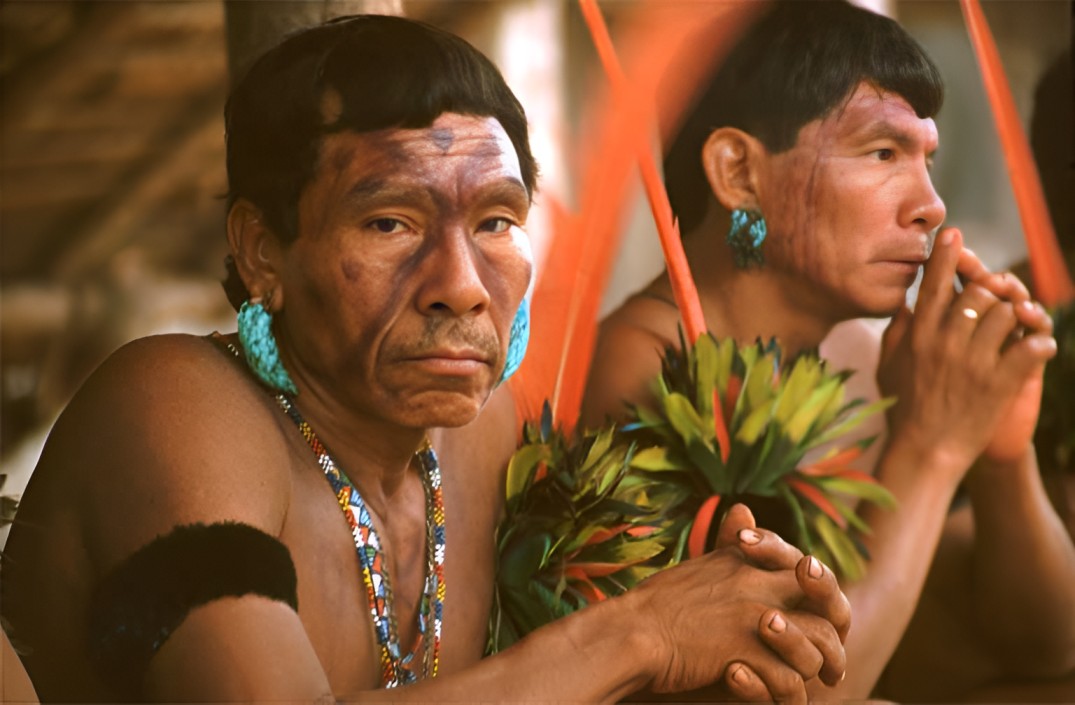Voices Beneath the Canopy: A Yanomami Story

A people who speak to the forest and believe it listens.
In the deep, breathing green of the Amazon, where rivers snake like silver veins and clouds hang low like secrets, there lives a people who speak to the forest and believe it listens, the Yanomami.
Their world is hidden from the eyes of the hurried, a place where time walks barefoot. The trees rise like cathedrals, their trunks painted with shadows. Every rustle in the leaves, every bird’s cry, every twist of the river holds meaning.
To outsiders, it may seem like wilderness. But to the Yanomami, it is memory. It is the law. It is home.
They do not live in houses like most. The Yanomami live together in a vast circular structure called the shabono, an open-air village built with palm leaves and vines, where up to 100 people share everything, space, food, fire, stories, and dreams.
There are no walls between families, only the flickering glow of shared flames and the soft lull of night insects.
Their lives flow with the forest. At dawn, men go out to hunt with bows longer than their arms, moving silently through the undergrowth, guided by instinct and the whisper of spirits.
They bring back monkeys, birds, sometimes wild pigs, gifts of the forest, taken only with respect. The women tend to the gardens, growing plantains, manioc, and wild tobacco, their bodies painted with natural dyes, their children clinging to their hips like vines to trees.
The Yanomami do not fear the invisible, they live with it. Their world is filled with xapiripë, spirit-beings that dance in visions, speak through shamans, and dwell in everything: the rivers, the stars, the stones. Shamans are not only healers; they are translators between the living and the unseen.
During ritual, they inhale yãkoana powder, blown through hollow bones into their nostrils, and fall into trance. There, they meet the spirits. Not in imagination, but in presence.
They chant, their voices trembling like leaves in a storm, calling on ancestors and forest guardians to cure sickness, bring peace, or offer warning.
Death is never simple for the Yanomami. When someone dies, it is not just the body that is mourned. It is the disruption of balance. The dead are cremated, their ashes mixed into a banana soup and consumed by the entire family.
It is not seen as morbid, but sacred. Through this ritual, called reahu, the spirit of the person returns home, made whole again by those who loved them.
Feuds between villages can brew, sometimes for years. But the Yanomami believe in resolution. They settle many disputes through rituals of exchange and even ceremonial chest-pounding duels, honor without death, anger without destruction.
The forest teaches humility. There is no wealth in things, only in relationships, with the land, with people, with spirits. Children learn by watching, by doing, by listening. Stories are passed from mouth to mouth, like fire from one torch to another.
But the forest is shrinking.
Outsiders dig where gold sleeps, and their machines scream through trees. Diseases come with them, and sorrow too. Still, the Yanomami stand.
They fight not with bullets, but with voices, with rituals, with the memory of what the forest was, and still could be.
When the rain falls, it falls like drumming. The shabono glows with laughter. And deep in the night, when even the stars hold their breath, a shaman sings. His voice threads the air like smoke, rising into the canopy.
